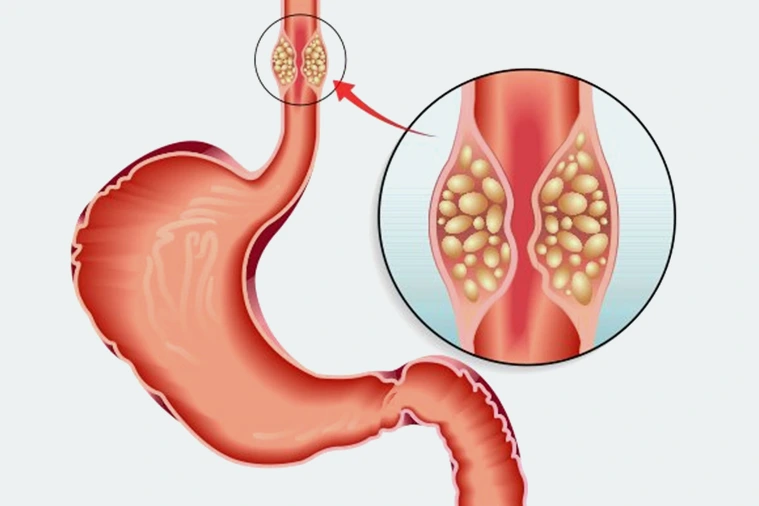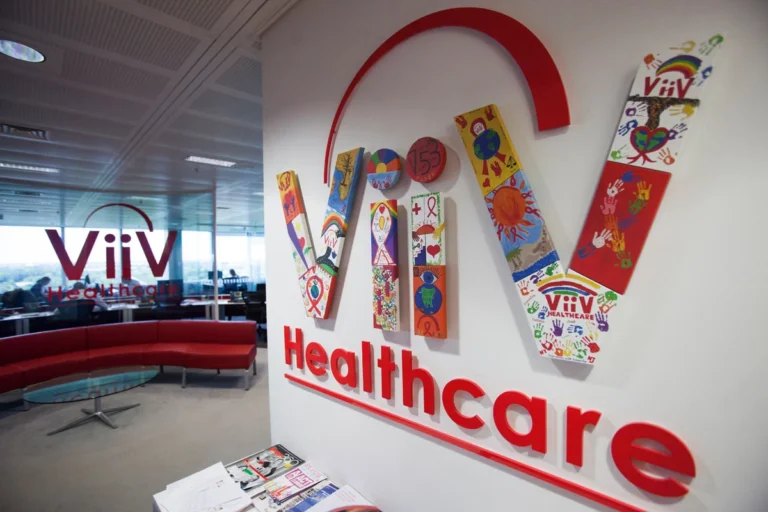
Merck and Eisai Update on LEAP-015 Trial in Gastroesophageal Cancer
Merck (NYSE: MRK), known as MSD outside of the U.S. and Canada, and Eisai have shared results from the Phase 3 LEAP-015 trial, which evaluated the combination of KEYTRUDA® (pembrolizumab), an anti-PD-1 therapy developed by Merck, and LENVIMA® (lenvatinib), a receptor tyrosine kinase inhibitor developed by Eisai, in combination with chemotherapy. This study focused on the first-line treatment of patients with locally advanced unresectable or metastatic HER2-negative gastroesophageal adenocarcinoma, a type of cancer in the stomach or gastroesophageal junction.
At an interim analysis, the combination therapy demonstrated a statistically significant improvement in progression-free survival (PFS) and objective response rate (ORR), both of which are important metrics in cancer treatment. However, the trial did not meet its second primary endpoint, overall survival (OS), by the final analysis. The safety profile of the combination was consistent with prior studies involving the same regimen. Merck and Eisai are continuing to evaluate the data and plan to present the full results at an upcoming medical conference.

Dr. Gregory Lubiniecki, Vice President of Global Clinical Development at Merck Research Laboratories, emphasized the challenges in treating gastroesophageal adenocarcinoma and stated that these results will contribute to advancing research in the field. Dr. Corina Dutcus, Senior Vice President of Oncology Global Clinical Development at Eisai, noted that while the trial didn’t show a significant improvement in overall survival, the improvements in PFS and ORR provide valuable insights for future research in this area.
KEYTRUDA and LENVIMA are already approved for use in treating other cancers, including advanced renal cell carcinoma and certain types of endometrial carcinoma. The combination is being studied in multiple other cancer types through the LEAP (LEnvatinib And Pembrolizumab) clinical program, including hepatocellular carcinoma and esophageal cancer.
In the context of gastric cancer, KEYTRUDA is already approved in combination with chemotherapy for treating adults with HER2-negative gastric or gastroesophageal junction (GEJ) adenocarcinoma in the first-line setting. Additionally, KEYTRUDA is approved in combination with trastuzumab for HER2-positive gastric or GEJ adenocarcinoma, with approval based on early tumor response and the durability of that response. These approvals are contingent on continued verification in ongoing confirmatory trials.
For esophageal cancer, KEYTRUDA is also approved in combination with chemotherapy for treating patients with advanced esophageal or GEJ carcinoma that cannot be surgically resected. This approval is based on data from the Phase 3 KEYNOTE-590 trial.
The results from the LEAP-015 trial do not impact the current indications for the KEYTRUDA plus LENVIMA combination or ongoing trials in the LEAP program. Merck and Eisai remain focused on understanding the full potential of this combination and its role in treating various cancers.
About LEAP-015 Trial
LEAP-015 is a randomized, open-label, Phase 3 trial (ClinicalTrials.gov, NCT04662710) that evaluates the combination of KEYTRUDA and LENVIMA, in addition to chemotherapy, compared to chemotherapy alone for first-line treatment of patients with HER2-negative gastroesophageal adenocarcinoma. The study consists of two parts: a safety run-in and the main study. The primary endpoints of the trial include overall survival (OS) and progression-free survival (PFS), assessed by independent review. Secondary endpoints include objective response rate (ORR) and duration of response (DOR). The study enrolled up to 880 patients, who were randomized to receive either the KEYTRUDA plus LENVIMA plus chemotherapy regimen or chemotherapy alone.
The treatment regimen Merck for patients receiving the combination includes approximately 12 weeks of induction therapy with KEYTRUDA (400 mg intravenously every six weeks) and LENVIMA (8 mg orally every day), along with chemotherapy (either CAPOX or mFOLFOX6). After the induction phase, patients move on to the consolidation phase, where they continue with KEYTRUDA and LENVIMA or with chemotherapy depending on the treatment arm.
About Gastric and Esophageal Cancer
Gastric cancer, which originates in the stomach, develops slowly and often remains undetected until it has reached an advanced stage. It is the fifth most diagnosed cancer and the fifth leading cause of cancer death globally. In 2022, around 969,000 people were diagnosed with gastric cancer, and approximately 660,000 died from it. In the U.S., gastric cancer diagnoses are expected to reach about 26,890 in 2024, with an estimated 10,880 deaths. The survival rate for patients diagnosed with advanced gastric cancer is only 7% over five years.
Esophageal cancer is another highly deadly cancer, with an estimated 511,000 new cases and 445,000 deaths globally in 2022. In the U.S., about 22,370 people are expected to be diagnosed with esophageal cancer in 2024, leading to around 16,130 deaths. Esophageal adenocarcinoma, which originates in the gland cells of the esophagus, is the most common type of esophageal cancer in the U.S., and its incidence is on the rise worldwide.
About KEYTRUDA® (pembrolizumab)
KEYTRUDA is an anti-PD-1 therapy that enhances the body’s immune response to fight cancer cells. It works by blocking the interaction between the PD-1 receptor and its ligands, PD-L1 and PD-L2, thereby activating T-cells that can target both cancerous and healthy cells. KEYTRUDA is used in a wide range of cancers and has a robust clinical program, with more than 1,600 trials ongoing across various types of cancer and treatment settings. The goal of these studies is to better understand how KEYTRUDA works across different cancers and which factors, including biomarkers, may predict a patient’s response to treatment.
Merck continues to lead the development of innovative cancer treatments through its extensive research program. With ongoing trials and significant contributions to cancer care, Merck remains committed to improving outcomes for cancer patients worldwide. Through collaboration with Eisai and other partners, Merck aims to further enhance the potential of KEYTRUDA and explore its use in treating a wide variety of cancers.




